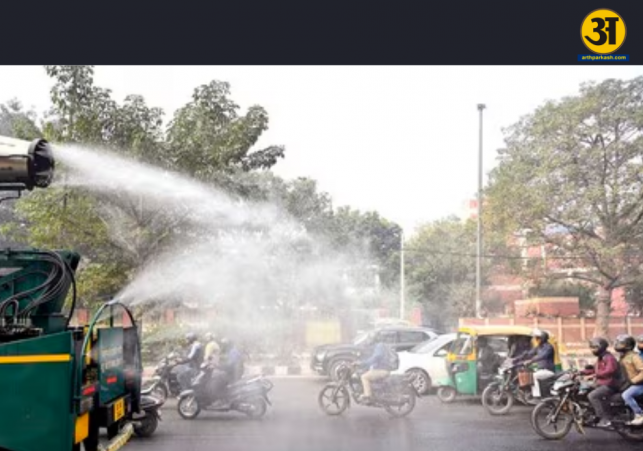
UP plans 193 new Air Quality stations
Uttar Pradesh to establish 193 new air quality monitoring stations
- By Gurmehar --
- Monday, 02 Dec, 2024
Uttar Pradesh is launching a significant project to tackle air pollution by adding 193 Continuous Ambient Air Quality Monitoring Stations (CAAQMS). This effort is part of the six-year Uttar Pradesh Clean Air Management Project (UPCAMP), running from 2024-25 to 2029-30. The project aims to improve air quality across the state and focuses on managing pollution in the Indo-Gangetic Plain, an area known as an airshed, where pollutants mix and affect everyone similarly.
Key features of the Project
The new monitoring stations will add to the 169 existing ones, with 49 currently providing real-time data. The upgraded infrastructure will enable hourly updates to monitor pollution levels better. As part of the project, roads near monitoring sites will be repaired to reduce dust pollution, further aiding in cleaner air.
A real-time air quality monitoring app called ‘Samir’ will be developed to provide users with up-to-date information about air quality. Additionally, three advanced super monitoring sites will be constructed at a cost of ₹61.38 crore, under the supervision of the Uttar Pradesh Pollution Control Board (UPPCB).
IIT Kanpur will support the initiative by establishing regional knowledge centers and receptor models to identify pollution sources. The institution will also integrate air quality studies into educational curriculums and train over 160 educators to spread awareness about air pollution.
ALSO READ: Yogi Adityanath’s strong warning amid Bangladesh unrest: ‘Batenge to Katenge…’
Innovations and collaborative efforts
The rural development department plans to distribute biofuel-based stoves to 35 lakh families to encourage cleaner cooking methods. These stoves will be partially funded through carbon credits, with beneficiaries covering any additional costs. Efforts to promote electric and solar cooking stoves will also be supported by the state’s renewable energy authority and Indian Oil Corporation.
Various departments, including health, transport, agriculture, and industry, will work together under UPCAMP. The health department will study how air pollution impacts public health, while the skill development council will lead educational initiatives. These collective measures aim to create a sustainable and cleaner environment across Uttar Pradesh.
The comprehensive plan, combining technological, educational, and community-driven strategies, is expected to set a strong example for tackling air pollution in India.





